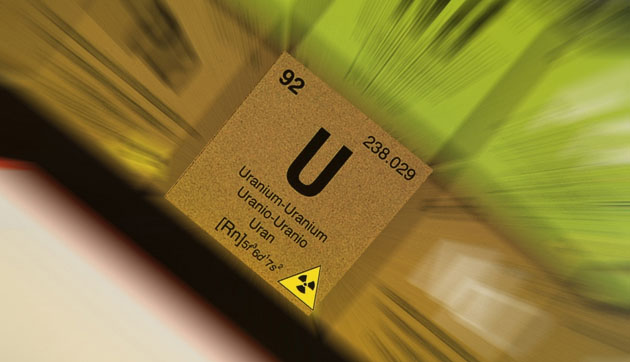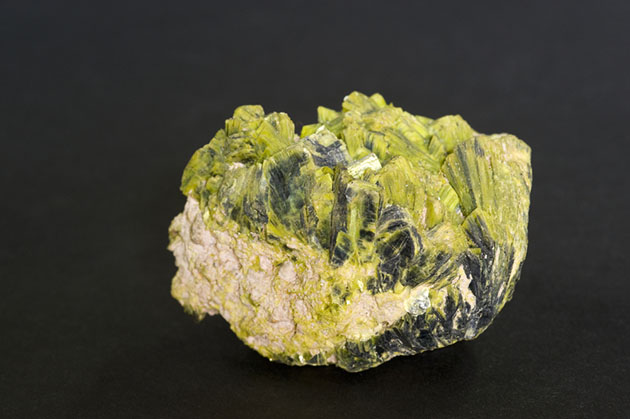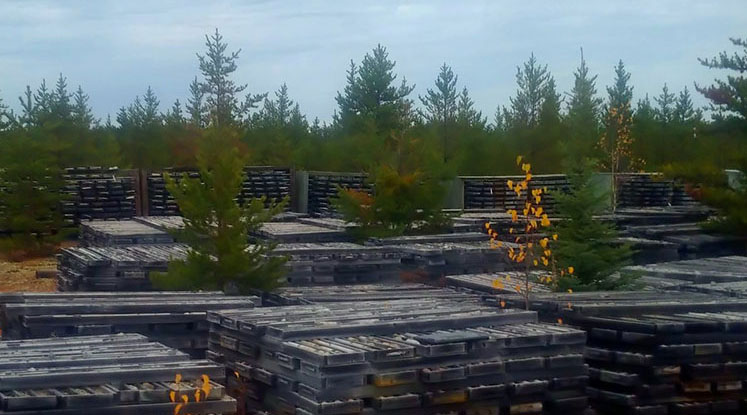Rick Rule: Oil Will Be Major Economic Driver
Source: Rick Rule (5/23/11)
 Global Resource Investments Founder Rick Rule likes to look for unpopular investments because that usually means the prices are cheap. Today, that means oil, natural gas, uranium and geothermal. In this Energy Report exclusive excerpt from his talk at the Casey Research Conference in Baton Rouge, Rule explains the global forces that will lead to big payoffs in undervalued energy stocks.
Global Resource Investments Founder Rick Rule likes to look for unpopular investments because that usually means the prices are cheap. Today, that means oil, natural gas, uranium and geothermal. In this Energy Report exclusive excerpt from his talk at the Casey Research Conference in Baton Rouge, Rule explains the global forces that will lead to big payoffs in undervalued energy stocks.
The developed societies of the West are descending and destabilizing. People have come to believe that they are entitled to live beyond their means. I'm not an economist or a political scientist, but that perception leads to some very hard math. How can you add a column of negative numbers and come up with a positive? It's not a uniquely American problem either. People in the old western societies, Canada and Australia suffer from the same delusion. We are old; we are fat; we are white and we are rich. Our collective problem was described by my grandfather in the following diddy: "When your outgo exceeds your income, your upkeep becomes your downfall."
I'm not just talking about a problem of tax receipts or government spending or entitlements. It isn't that we're collectively stupid. It's that we're individually stupid. There seems to be a belief in the United States that a 55 or 56-year-old auto worker can make $55 an hour because he or she can employ technology better than a 22-year-old Indian auto worker. I don't think so.
Another problem is that the root causes of the liquidity crisis of 2008 have still not been addressed. If you have a big problem that manifested itself in a fairly dramatic fashion and you haven't addressed the causes, do you think it's reasonable to be afraid of the fact that that probability may reassert itself? I do.
So, what's the good news? The emerging and frontier markets—societies where people are un-free—are becoming a bit more free. As they become a bit freer, they become richer. Remember Chinese Communist Party Leader Deng Xiaoping, who famously said, "to become rich is glorious." That phrase turned China loose. Make no mistake, we aren't talking about an unending upward linear spiral. There is plenty of room for negative surprises. We have seen in places like Libya, Yemen and California that the road to freedom is uneven. But it is an undeniable force.
So we have descending destabilization of Western societies, which is not good for commodities. It's not good for anything. But we also have ascending emerging markets. That is good for resources. When people get more money at the bottom of the economic pyramid, they buy things made of stuff. A poor person might trade a thatch roof for a metal roof. He might trade walking for a bicycle and eventually for a motor scooter. Old, fat rich people buy a nice dinner. Maybe we buy an iPod for a grandchild and load it with virtual songs. All good things, but they are not made of stuff. Selling stuff is what makes investors rich.
Think about it as two great weather systems coming together. Old, spoiled, rich and stupid meets this amazing demand for resources. What happens when two big weather systems collide? Stormy weather, turbulence, volatility. I think we're going to see volatility on steroids. Volatility can cause strange things. Oil shoots up repeatedly above $100/barrel. Then there's that other kind of volatility like in 2008 when things fell off a cliff. So, you have to manage expectations going forward. There will be more upward spikes and more down-spikes.
Now, volatility doesn't need to be a risk. It's up to you. Remember this. Perceptions of the future are set by immediate past experiences. That means in the near term, as Financial Author Jim Dines famously says, "a trend in motion stays in motion until it stops." We often confuse a bull market with brains. Markets gain momentum and gain momentum and gain momentum and gain momentum. We buy a stock for $1.00. The stock goes to $2.00. What do we do? We double up. Think about this. Is this rational behavior? No, but it feels good. We're smart. The stock went up. The sector's good because the stock went up. The higher the prices go, the better we like it despite the fact that the value is eroding right in front of us. The contrarian thesis, of course, is to be brave when others are afraid and afraid when others are brave. It's a wonderful slogan but it's damn hard. When a company is selling for half it's worth people complain that it never goes up. In other words, the fact that it's cheap becomes a curse; a wonderful curse from my point of view. Unless, as occasionally happens, I'm wrong. What's the biggest investment risk out there? Obama? Debt? Nuclear arms? No. The biggest investment risk you have is to the left of your right ear and to the right of your left ear. All of my worst financial experiences were self-inflicted.
The reality is that volatility is good because it represents a series of 40% off sales. It's up to you whether you take advantage of volatility or whether volatility takes advantage of you. Common sense is the real determinant over whether you will do well. If something doesn't make sense, very often it's because it doesn't make sense. Financier George Soros made almost all of his money finding widely-held premises that were wrong and betting against them. He famously decided in the year 2000 that the United States society was hubris infected. You remember the spectacular bull market of 2000. We had vanquished the Soviet Union and everyone thought nothing could go wrong with America. Soros bet against it. That's the kind of common sense that will allow you to deal with volatility.
My approach is very simple. It comes down to this: "hit them where they ain't." Know this: A trade that's popular, a perception that's popular, an idea that's popular is very likely overpriced. I've come to prefer underpriced. That's why I concentrate on stuff that's unpopular. Fortunately for me unpopular stocks are in fairly good supply. It's an orientation that has served me well over the long term. Over the short term, however, this approach can be inconvenient from time to time. One thing that happens with lonely trades is that when you make a mistake, you usually make a fairly serious mistake. Your speculative portfolio isn't trying hard enough if you don't have a couple of positions lose 30% or 40%. I know this is hard to stomach, but it is true.
So, how do you create a portfolio that flourishes in the face of volatility when the resource market is no longer cheap? First case, create liquidity; have some cash. It's ok if your cash is bullion, but have some cash. You have to have cash. When volatility occurs, cash will do two wonderful things for you. It will give you the ability and it will give you the ability to act in down markets. It doesn't matter if stocks are cheap if you can't do anything about it. Cash will also give you the courage to act. So, have some liquidity.
Then look for things other people aren't looking at already. Ask yourself, "What's unpopular?" I think energy is unpopular. Oil will be a major driver going forward. Globally, most oil is produced by national companies. It's produced by the same people who can't educate kids or deliver the mail. Governments are diverting oil revenue cash-flow to politically-expedient spending programs and not reinvesting in their oil business. I believe as much as 25% of the world's supply of export crude will come off the market in five years. Specifically, I think that Mexico, Venezuela, Ecuador, Peru, Indonesia and, perhaps, Iran will cease to be oil exporters. So, think about some simple math. If worldwide export demand is growing at 3% compounded and worldwide supply falls by 25% remembering that prices are set on the margin, the outlook for the oil price has to be higher. And, oil drags all other forms of energy. Natural gas is already a third the price on an energy equivalent basis of oil. Natural gas prices are low and they are going to stay low for a couple of years. Natural gas is so unpopular in the Canadian brokerage community that gas might as well be a four letter word. No one wants to be near it. That means it is cheap. The same goes for uranium. What happened in Japan was a tremendous human tragedy. However, most of us, despite our fears about what happened in Japan, when we walk into a room and hit the switch prefer it if the lights go on. That is why global and Japanese use of nuclear power will continue to grow. I am also still positive about the prospects for geothermal. It is taking a long time, but that is why it is a good deal.
Good luck.
Rick Rule spoke at the recent Casey Summit "The Next Few Years" in Boca Raton, FL, along with 34 other renowned economists, investment pros and resource experts who shared their outlook for the future of the U.S. economy, the dollar, and the markets. Hear the straight dope – including specific stock picks and practical investment advice – from legends like John Williams (ShadowStats), James G. Rickards, Chris Whalen, Rick Rule, Mike Maloney, Doug Casey, and others. . .all on one Summit CD set with more than 20 hours of audio recordings. Find out more.
Rick Rule, founder of Global Resource Investments (GRI), began his career in the securities business in 1974, and has been principally involved in natural resource security investments ever since. He is a leading American retail broker specializing in mining, energy, water utilities, forest products and agriculture. Rule's company has built a national reputation for its specialist expertise in taking advantage of global opportunities in the oil and gas, mining, alternative energy, agriculture, forestry, and water industries.
Want to read more exclusive Energy Report articles like this? Sign up for our free e-newsletter, and you'll learn when new articles have been published. To see a list of recent interviews with industry analysts and commentators, visit our Exclusive Interviews page.
I'm not just talking about a problem of tax receipts or government spending or entitlements. It isn't that we're collectively stupid. It's that we're individually stupid. There seems to be a belief in the United States that a 55 or 56-year-old auto worker can make $55 an hour because he or she can employ technology better than a 22-year-old Indian auto worker. I don't think so.
Another problem is that the root causes of the liquidity crisis of 2008 have still not been addressed. If you have a big problem that manifested itself in a fairly dramatic fashion and you haven't addressed the causes, do you think it's reasonable to be afraid of the fact that that probability may reassert itself? I do.
So, what's the good news? The emerging and frontier markets—societies where people are un-free—are becoming a bit more free. As they become a bit freer, they become richer. Remember Chinese Communist Party Leader Deng Xiaoping, who famously said, "to become rich is glorious." That phrase turned China loose. Make no mistake, we aren't talking about an unending upward linear spiral. There is plenty of room for negative surprises. We have seen in places like Libya, Yemen and California that the road to freedom is uneven. But it is an undeniable force.
So we have descending destabilization of Western societies, which is not good for commodities. It's not good for anything. But we also have ascending emerging markets. That is good for resources. When people get more money at the bottom of the economic pyramid, they buy things made of stuff. A poor person might trade a thatch roof for a metal roof. He might trade walking for a bicycle and eventually for a motor scooter. Old, fat rich people buy a nice dinner. Maybe we buy an iPod for a grandchild and load it with virtual songs. All good things, but they are not made of stuff. Selling stuff is what makes investors rich.
Think about it as two great weather systems coming together. Old, spoiled, rich and stupid meets this amazing demand for resources. What happens when two big weather systems collide? Stormy weather, turbulence, volatility. I think we're going to see volatility on steroids. Volatility can cause strange things. Oil shoots up repeatedly above $100/barrel. Then there's that other kind of volatility like in 2008 when things fell off a cliff. So, you have to manage expectations going forward. There will be more upward spikes and more down-spikes.
Now, volatility doesn't need to be a risk. It's up to you. Remember this. Perceptions of the future are set by immediate past experiences. That means in the near term, as Financial Author Jim Dines famously says, "a trend in motion stays in motion until it stops." We often confuse a bull market with brains. Markets gain momentum and gain momentum and gain momentum and gain momentum. We buy a stock for $1.00. The stock goes to $2.00. What do we do? We double up. Think about this. Is this rational behavior? No, but it feels good. We're smart. The stock went up. The sector's good because the stock went up. The higher the prices go, the better we like it despite the fact that the value is eroding right in front of us. The contrarian thesis, of course, is to be brave when others are afraid and afraid when others are brave. It's a wonderful slogan but it's damn hard. When a company is selling for half it's worth people complain that it never goes up. In other words, the fact that it's cheap becomes a curse; a wonderful curse from my point of view. Unless, as occasionally happens, I'm wrong. What's the biggest investment risk out there? Obama? Debt? Nuclear arms? No. The biggest investment risk you have is to the left of your right ear and to the right of your left ear. All of my worst financial experiences were self-inflicted.
The reality is that volatility is good because it represents a series of 40% off sales. It's up to you whether you take advantage of volatility or whether volatility takes advantage of you. Common sense is the real determinant over whether you will do well. If something doesn't make sense, very often it's because it doesn't make sense. Financier George Soros made almost all of his money finding widely-held premises that were wrong and betting against them. He famously decided in the year 2000 that the United States society was hubris infected. You remember the spectacular bull market of 2000. We had vanquished the Soviet Union and everyone thought nothing could go wrong with America. Soros bet against it. That's the kind of common sense that will allow you to deal with volatility.
My approach is very simple. It comes down to this: "hit them where they ain't." Know this: A trade that's popular, a perception that's popular, an idea that's popular is very likely overpriced. I've come to prefer underpriced. That's why I concentrate on stuff that's unpopular. Fortunately for me unpopular stocks are in fairly good supply. It's an orientation that has served me well over the long term. Over the short term, however, this approach can be inconvenient from time to time. One thing that happens with lonely trades is that when you make a mistake, you usually make a fairly serious mistake. Your speculative portfolio isn't trying hard enough if you don't have a couple of positions lose 30% or 40%. I know this is hard to stomach, but it is true.
So, how do you create a portfolio that flourishes in the face of volatility when the resource market is no longer cheap? First case, create liquidity; have some cash. It's ok if your cash is bullion, but have some cash. You have to have cash. When volatility occurs, cash will do two wonderful things for you. It will give you the ability and it will give you the ability to act in down markets. It doesn't matter if stocks are cheap if you can't do anything about it. Cash will also give you the courage to act. So, have some liquidity.
Then look for things other people aren't looking at already. Ask yourself, "What's unpopular?" I think energy is unpopular. Oil will be a major driver going forward. Globally, most oil is produced by national companies. It's produced by the same people who can't educate kids or deliver the mail. Governments are diverting oil revenue cash-flow to politically-expedient spending programs and not reinvesting in their oil business. I believe as much as 25% of the world's supply of export crude will come off the market in five years. Specifically, I think that Mexico, Venezuela, Ecuador, Peru, Indonesia and, perhaps, Iran will cease to be oil exporters. So, think about some simple math. If worldwide export demand is growing at 3% compounded and worldwide supply falls by 25% remembering that prices are set on the margin, the outlook for the oil price has to be higher. And, oil drags all other forms of energy. Natural gas is already a third the price on an energy equivalent basis of oil. Natural gas prices are low and they are going to stay low for a couple of years. Natural gas is so unpopular in the Canadian brokerage community that gas might as well be a four letter word. No one wants to be near it. That means it is cheap. The same goes for uranium. What happened in Japan was a tremendous human tragedy. However, most of us, despite our fears about what happened in Japan, when we walk into a room and hit the switch prefer it if the lights go on. That is why global and Japanese use of nuclear power will continue to grow. I am also still positive about the prospects for geothermal. It is taking a long time, but that is why it is a good deal.
Good luck.
Rick Rule spoke at the recent Casey Summit "The Next Few Years" in Boca Raton, FL, along with 34 other renowned economists, investment pros and resource experts who shared their outlook for the future of the U.S. economy, the dollar, and the markets. Hear the straight dope – including specific stock picks and practical investment advice – from legends like John Williams (ShadowStats), James G. Rickards, Chris Whalen, Rick Rule, Mike Maloney, Doug Casey, and others. . .all on one Summit CD set with more than 20 hours of audio recordings. Find out more.
Rick Rule, founder of Global Resource Investments (GRI), began his career in the securities business in 1974, and has been principally involved in natural resource security investments ever since. He is a leading American retail broker specializing in mining, energy, water utilities, forest products and agriculture. Rule's company has built a national reputation for its specialist expertise in taking advantage of global opportunities in the oil and gas, mining, alternative energy, agriculture, forestry, and water industries.
Want to read more exclusive Energy Report articles like this? Sign up for our free e-newsletter, and you'll learn when new articles have been published. To see a list of recent interviews with industry analysts and commentators, visit our Exclusive Interviews page.



























































